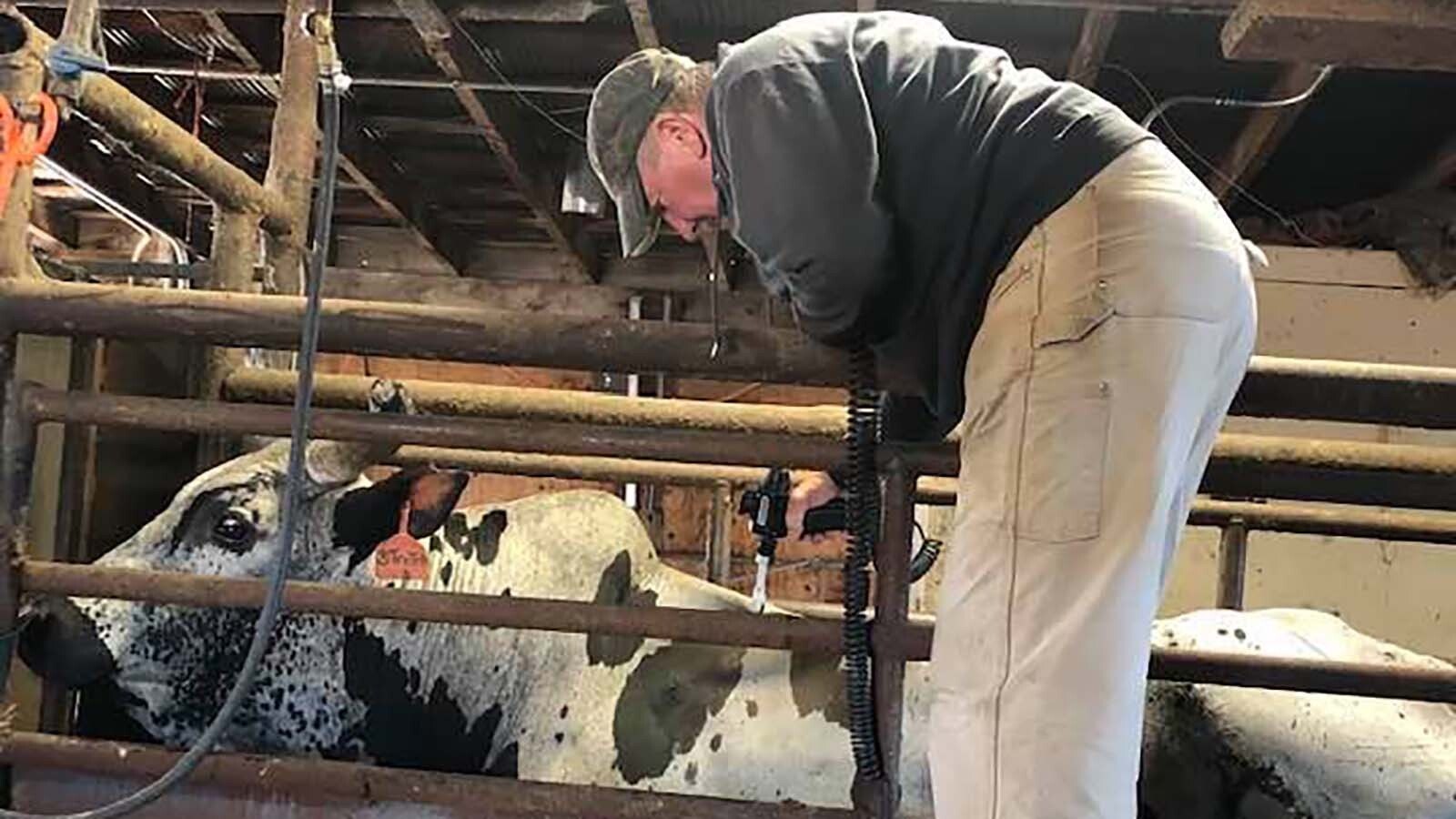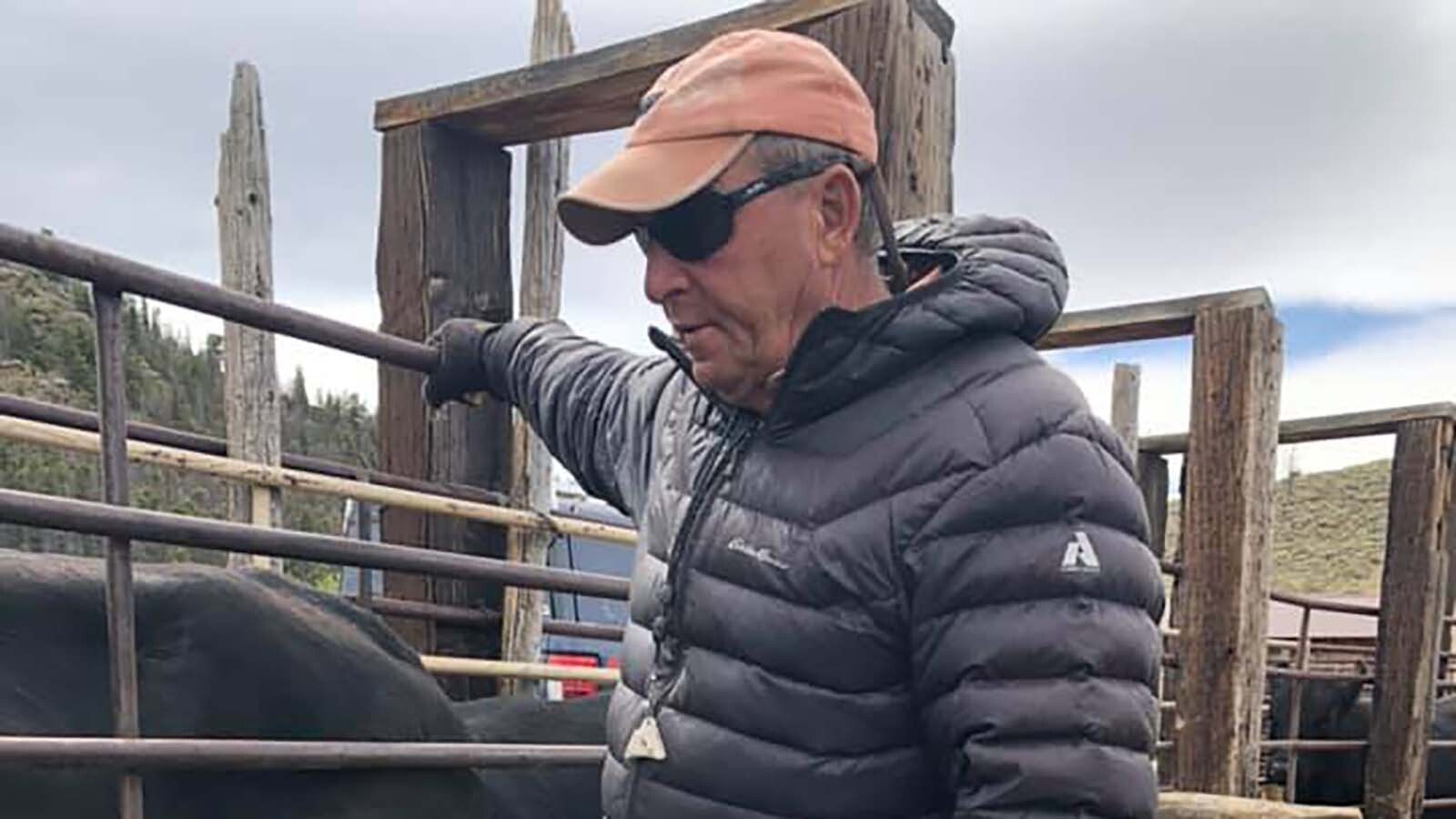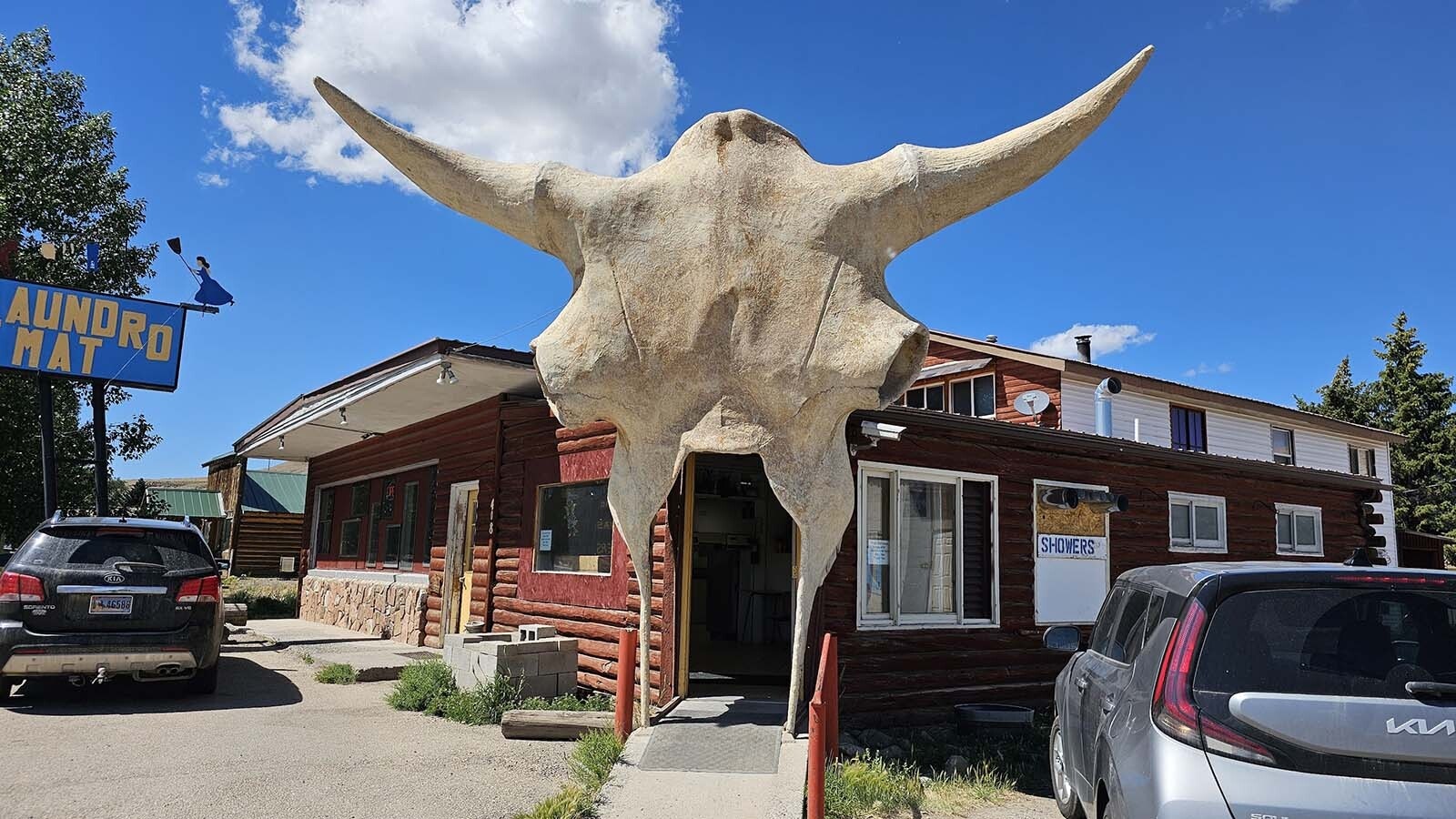Blame it on technology. Blame it on the pandemic. Blame it on a growing sense of entitlement.
However it’s justified, a lot of people are pushing back against an out-of-control tipping culture to the point some are boycotting leaving tips altogether.
Even bartenders in Wyoming, who like restaurant servers, are paid sub-minimum wages because tips are a significant part of their income are saying that tipping has gotten way out of hand.
“Just because you’re signing something — there are some credit card companies where they have a tip that’s just there, just in case,” 3 Sisters Truck Stop bartender and waitress Avy Emerson in Manville told Cowboy State Daily. “I feel like if you’re at a place where you’re not being served and waited on you really shouldn’t have to tip.”
She says that even though she’s been known to tip a cashier who went above and beyond, telling them to keep the change or handing them a dollar.
“If you’re going through a drive-through coffee place, I mean, it’s more than welcome to tip if you want, awesome, do it,” she said. “But they also make above the minimum wage point. In Wyoming, if you are a waitress, the minimum wage for wait staff is like $5.25, because they factor in tips.”
Emerson isn’t alone in these thoughts.
Kat Deeds, who manages the Mint Bar in Sheridan, has a similar perception that tipping has gone off the deep end. She doesn’t rely on tips anymore, but she remembers when her bottom line depended on getting tipped regularly.
“I know it’s very important to my employees now,” she said. “But I do kind of feel like it’s getting a little wild. It’s not just people who used to be normally the ones living off tips — the bartenders, waitresses, and stuff like that. You’re going to all these other places, and they’re wanting you to tip.”
The whole trend is partly due to technology, she acknowledged, where tipping is the default mechanism for iPad-like screens.
And, too, during the pandemic, people wanted ways to support their favorite businesses. The tipping screen helped facilitate some of that.
But Deeds said she’s faced a tip screen numerous times now at some pretty unexpected times, even at some self-checkouts where she is the one doing all of the work.
“I’m like, but there’s nobody who helped me,” she said. “So, I do feel like at certain points, it’s just a little out of control.”
Fed Up With Tipping
Nationwide, Americans are largely fed up with tipping, according to a number of surveys.
Pew Research Center, in a survey conducted last year, said 72% of U.S. adults feel that tipping is expected in a lot more places today than five years ago, but far fewer said they felt confident about when (34%) and how much (33%) to tip.
There’s also little to no consensus about whether tipping is an obligation or a choice. A majority, 49%, said it depends on the situation, while 21% said it’s a choice and 29% believe it’s an obligation.
Automatic service charges have broad opposition, however, at 72% and about 40% oppose even suggesting tip amounts.
Most people agree with tipping in restaurants, with 92% saying they always or often leave a tip in that scenario. Other services where tips were common included haircuts (78%), food deliveries (76%), buying drinks at a bar (70%), and taxis and ride shares (61%).
Far fewer tip when buying a coffee — just 25% — or when eating at a fast casual restaurant — 12%.
There’s also no definitive agreement on how much a tip should be.
About 6 in 10, or 57%, say they tip 15%, while a quarter say they tip 20% or more. Two percent say they won’t leave any tip at all.
A majority did agree that tips are about quality of service, at 77%.
Once Optional Now Less So
As Deeds sees it, tips were originally meant to recognize service that went above and beyond. It was an optional thing that some customers did to ensure good service.
It’s still optional in her view, but the 1966 Fair Labor Standards Act, which allowed waitstaff to be paid sub minimum wages, has made many feel it is more compulsory now.
Under the law, wages are still supposed to meet or exceed the established federal minimum wage, but tips can count toward the total.
The federal sub minimum wage under the Fair Labour Standards Act has been $2.13 for the last 25 or so years, while Wyoming is among states that have set a higher sub minimum wage, at $5.12.
If the tips waitstaff make do not make up the difference between the sub minimum wage and the actual minimum wage, employers are supposed to true things up. In practice, though, workers who approach managers about tip discrepancies can face retaliation. They may be fired or moved to slower shifts.
Sienna Deaton, a bartender and waitress at Alibi Wood Fire Pizzaria & Bakery in Laramie, used to think tipping was an actual rule, that customers had to do it.
So, the first time she didn’t get a tip, it was a little perplexing.
She wondered if she’d done something wrong, or if something had been wrong with the food. Now that she’s been doing it awhile, though, she realizes it’s not a rule, even though it is a substantial part of her wages.
The ones who don’t tip? She’s noticed they’re usually older customers. Old enough to remember when tipping wasn’t considered part of a waitress’ salary.
But even she agrees that tipping has gone way over the top.
“I mean it’s like self-checkout, and it’s asking for a tip,” she said.
Deeds, meanwhile, has seen that some workers have come to expect a tip, regardless of how good their service has been.
“It’s meant to ensure proper service,” Deeds said. “So, when you’re working on tips, that means you’re going to provide a service for that money they’re giving you. It’s not just something that should just be expected.”
By the same token, Deeds added, customers shouldn’t expect to treat wait staff any old way just because they’re leaving a tip.
“Nobody needs their tip that bad,” she said.
Renée Jean can be reached at renee@cowboystatedaily.com.







